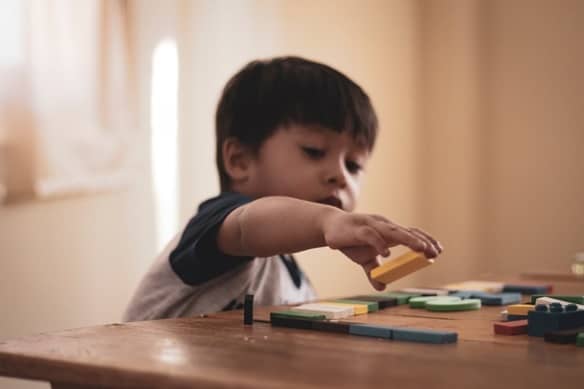It is every parent’s duty to discipline their kids and to teach them the importance of work and play balance. Work for kids is equivalent to their time in school, while play is their free leisure time. Both of these important aspects should be balanced for the purpose of teaching your kids to manage their time and prioritize studies over games. Here are just a few things parents can do in order to implement this discipline consistently:
1. No means NO!
Discipline may be either be soft or rigid. There are times in which you’d have to softly whisper instructions to your kids, something that parents often do to their obedient tykes. For strict compliances, however, the word “no” would definitely mean a strong, rigid NO! Your kids should learn that not “every time” is a “playtime,” when they try to force their way into more games, tell them the difference between priorities and hobbies. Yes, they may play, but only during their free times (weekends, after every homework is done, summer vacation, etc.), but once they come home from school, the free passes are off and they should stick to their books, and concentrate on their studies. As parents, you may assist them in accomplishing school work, but not to the point that you’d have to finish all the deliverables for them.
2. All work and no play make them non-sociable.
While urging them to focus on their studies should be on top of every school year’s “to-do list,” always remember that they still need time to loosen up and indulge in play. You can even convert this into a reward system. After they finish their home works/assignments, you may allow them to play on their cellphones or computer, given that they are able to understand their lessons, and not just rushing to accomplish it in record time. A parent’s job at this point is to monitor their children’s progress and to intervene whenever they’re underperforming. Explain the consequences of all work and no play, while at the same time, emphasizing on the disadvantages of the opposite as well. Here in the Philippines, a certain law prohibits teachers from giving their students home work during the weekends, hence, kids can have two whole days of play.
3. School work doesn’t have to be boring.
Believe it or not, teachers are actually implementing fun ways of educating their students nowadays. Gone are the days of focusing solely on books. Kindergarteners are now enticed to learn via songs and educational videos, grade-schoolers are also shown visual aids and videos to help them understand their lessons better. As parents, you may apply this process in helping your kids with their homework. There are countless videos online pertaining to class lessons. Instead of watching the usual animes and movie trailers, you may encourage them to watch a review of their lessons, some with shortcuts and techniques that would help them implement their studies faster (shorter formulas for Mathematics, memory graphs for historic dates and events, etc.).
With all of that being said, another major thing that you can teach your kids is to save. At an early age, they should know the dos and don’ts of financials, and as parents, it is your duty to let them know that money do not grow on trees. Cebuana Lhuillier can help you do just that. You’re probably looking for a bank that you’d be able to trust with all of your life’s worth of savings (and perhaps a Junior Savings Account for your kids as well). Look no further than Cebuana Lhuiller, with its Micro Savings. Initially offered in our Rural Bank branches, it is now available through our entire Cebuana Lhuillier branch networks. Simply put, you can use your 24K Plus card at any of our Cebuana Lhuillier Pawnshop and Bank Branches in order to save. With a minimum deposit amount of only P50 and no minimum maintaining balance, it’s incredibly easy to apply for one. You can even check your savings amount via SMS 24/7. Visit your nearest Cebuana Lhuillier branch now – we assure a fast, easy and secure transaction.

